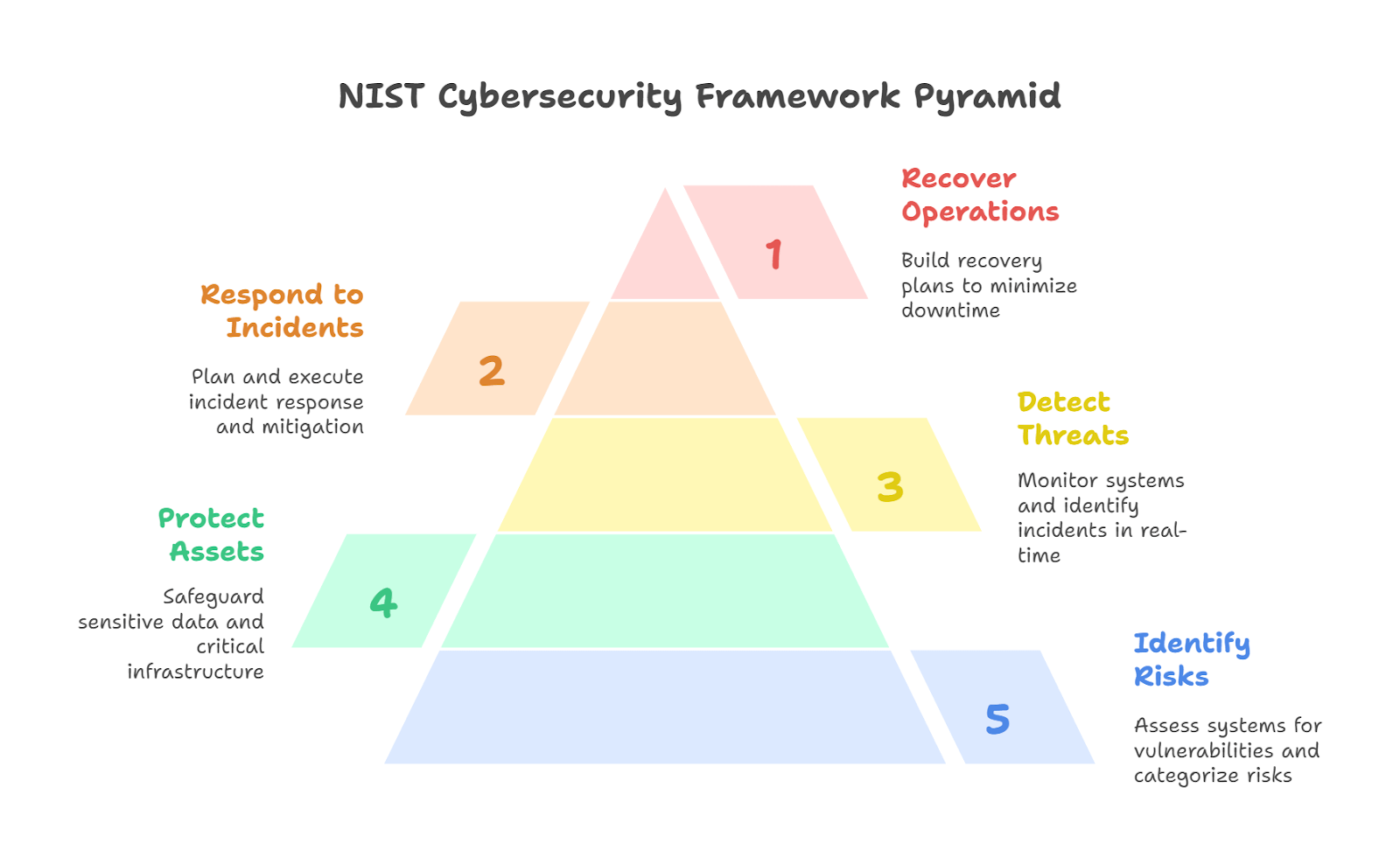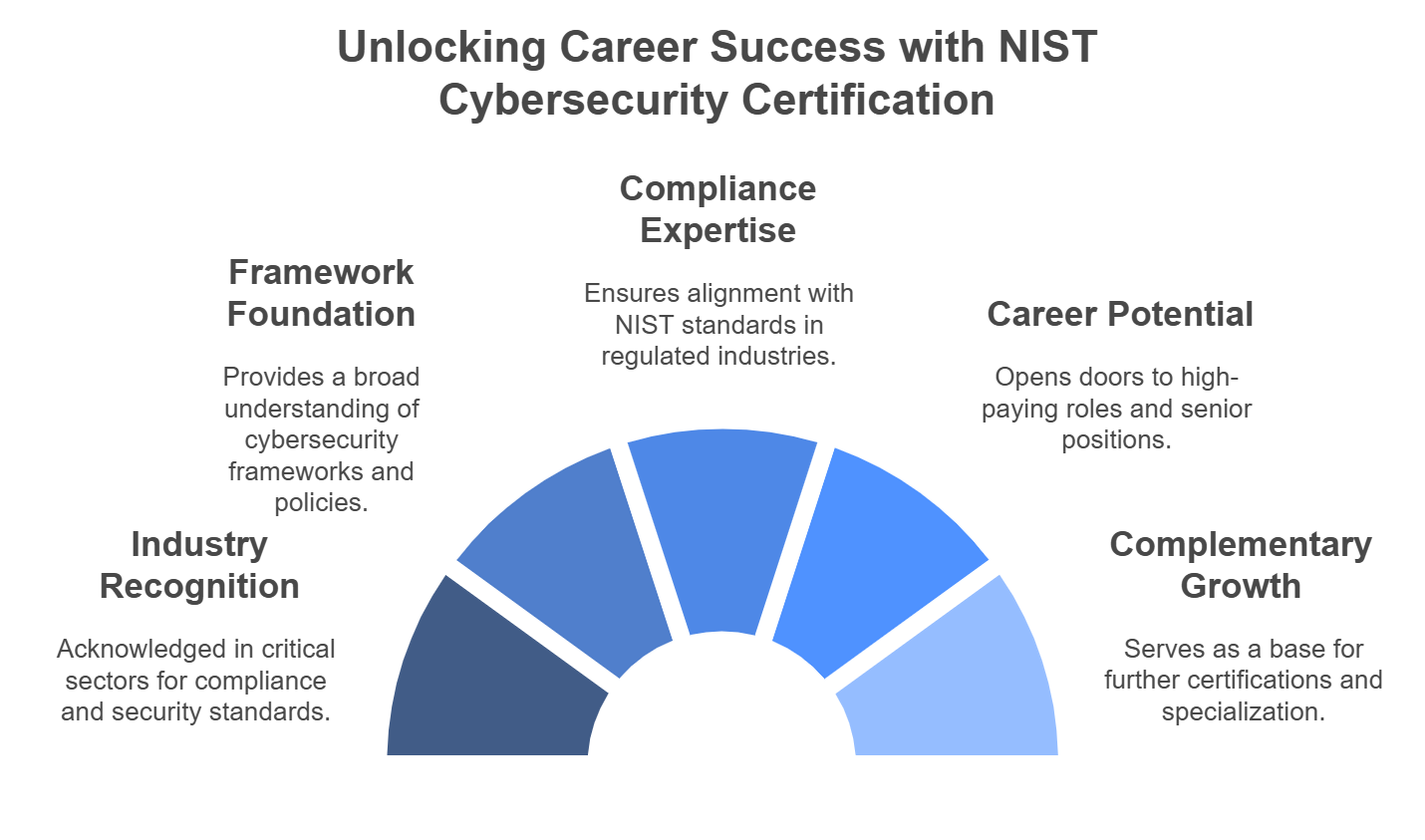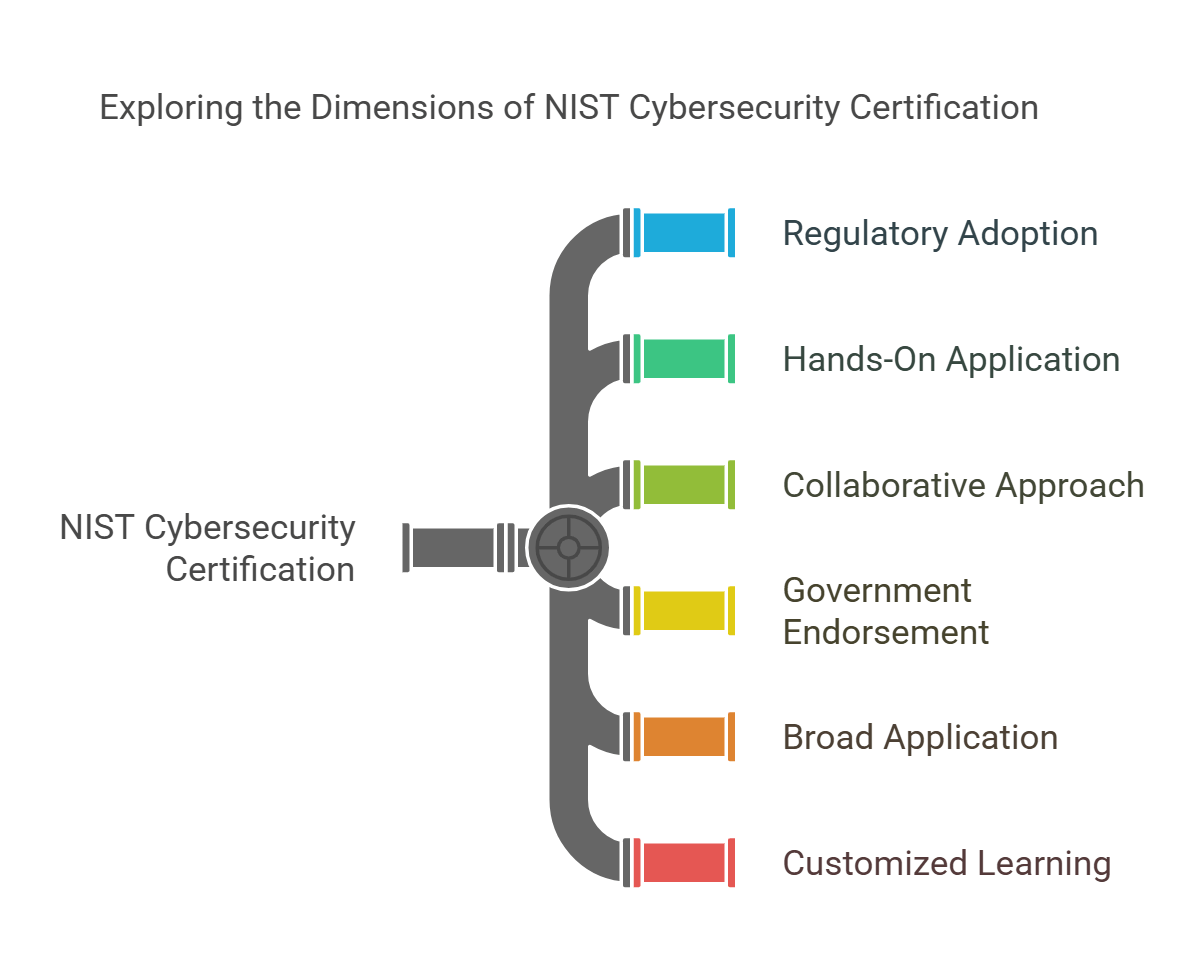Table of Contents
- What is the NIST Cybersecurity Certification?
- Benefits of NIST Cybersecurity Certification
- How Does NIST Cybersecurity Certification Compare with Cisco Cybersecurity Certification?
- Why Consider ACSMI Certification to Supplement NIST?
- The Importance of Certification in Today’s Cybersecurity World
- 6 Lesser-Known Facts About NIST Cybersecurity Certification
- Final Thoughts
- FAQs About NIST Cybersecurity Certification
As the digital landscape continues to evolve, cybersecurity remains one of the most critical aspects of maintaining the integrity and security of both the public and private sectors. From protecting personal data to securing complex systems, the role of cybersecurity professionals has never been more vital. The demand for skilled professionals in this space is skyrocketing, yet there remains a significant skills gap. This is where certifications, particularly the Guide to Cybersecurity Certification Training and the NIST Cybersecurity Certification, come into play.
What is the NIST Cybersecurity Certification?

The NIST Cybersecurity Certification is a credential designed to help professionals implement and adhere to the NIST Cybersecurity Framework (CSF), a systematic and comprehensive approach to identifying, managing, and addressing cybersecurity risks. Developed by the National Institute of Standards and Technology (NIST), this framework is widely recognized and used by government agencies, private corporations, and international organizations.
The certification helps equip participants with the necessary skills to effectively apply the NIST Cybersecurity Framework, focusing on key areas such as:
-
Identifying Security Risks: Learn how to assess systems for vulnerabilities and categorize risks.
-
Protecting Digital Assets: Develop strategies to safeguard sensitive data and critical infrastructure.
-
Detecting Threats: Gain skills in monitoring systems and identifying incidents in real time.
-
Responding to Incidents: Master incident response planning and mitigation tactics.
-
Recovering Operations: Learn how to build robust recovery plans to minimize downtime.
The NIST Cybersecurity Certification is ideal for anyone involved in IT, data protection, risk management, or general cybersecurity policies.
Benefits of NIST Cybersecurity Certification

1. Industry Recognition
The NIST Cybersecurity Certification is highly regarded, particularly in sectors like government, healthcare, and finance, where compliance and cybersecurity are critical. Organizations in these fields often require professionals to meet specific security standards, making the NIST certification a valuable asset in navigating these regulated industries.
2. Strong Foundation in Frameworks
While many certifications focus on niche technologies or specific tools, the NIST Cybersecurity Certification provides a broader understanding of operational and organizational cybersecurity. This foundation in frameworks and policies helps professionals contribute effectively to cybersecurity at all levels.
3. Compliance Expertise
Professionals with this certification gain expertise in ensuring their company’s processes align with NIST standards—an essential capability in industries subject to regulatory scrutiny. Understanding these compliance frameworks prepares individuals for roles where risk management and cybersecurity policies are crucial.
4. Career Potential
The NIST Cybersecurity Certification opens doors to high-paying roles in areas like compliance, risk management, and cybersecurity operations. The growing emphasis on cloud security, regulatory frameworks, and data protection means that certified professionals are poised to command higher salaries and more senior positions.
5. Complementary Growth
The NIST certification serves as a strong foundation for further career development. It complements other certifications, such as the Cisco Cybersecurity Certification for network defense or the ACSMI Certification, offering more advanced, hands-on training and specialization.
How Does NIST Cybersecurity Certification Compare with Cisco Cybersecurity Certification?
Both the NIST Cybersecurity Certification and Cisco Cybersecurity Certification are highly respected, but they serve different roles within cybersecurity. Here’s a closer look:
Purpose and Focus
-
NIST Certification: Focuses primarily on policy frameworks, compliance, and risk management. It’s about building cybersecurity strategies and aligning them with established standards.
-
Cisco Certification: On the other hand, is heavily focused on technical expertise related to network security, configuration, and troubleshooting. It is ideal for professionals working in roles that require practical, hands-on technical knowledge of network and system security.
Prerequisites
-
NIST: Requires minimal prerequisites, making it accessible to both entry-level professionals and those already working in IT.
-
Cisco: Has a slightly steeper learning curve and requires some familiarity with IT and network fundamentals. Cisco offers a variety of certifications, from beginner to advanced levels.
Practical Experience
-
NIST: Emphasizes theoretical and strategic approaches to cybersecurity, ideal for roles in management and policy-making.
-
Cisco: Provides practical, real-world experience through labs and hands-on exercises, making it a better fit for professionals who need to implement and manage cybersecurity tools directly.
Why Consider ACSMI Certification to Supplement NIST?
For those looking to deepen their expertise in cybersecurity, the ACSMI Certification can complement the Cybersecurity Maturity Model Certification 2.0 and the NIST Cybersecurity Certification. The ACSMI program offers 400+ specialized modules covering cutting-edge fields such as ethical hacking, quantum threat modeling, and AI-enabled risk management.
Unlike NIST or Cisco, which lean toward frameworks and networks, the ACSMI certification provides a unique opportunity to dive deeper into specialized skills and emerging technologies. The combination of Cybersecurity Maturity Model Certification 2.0, NIST, and ACSMI will give you a comprehensive skill set that bridges theoretical frameworks with practical, hands-on expertise.
The Importance of Certification in Today’s Cybersecurity World
Cybersecurity threats are more sophisticated than ever, and the need for skilled professionals has never been greater. Certifications like NIST, Cisco, and ACSMI provide the knowledge and expertise needed to stay ahead of the curve.
-
Cisco Cybersecurity Certification prepares professionals for technical challenges through hands-on labs and security-focused network strategies.
-
NIST Cybersecurity Certification focuses on compliance and policy-making, crucial in regulated industries.
-
ACSMI Certification enables advanced specialization in areas such as cloud forensics, incident response, and leadership roles.
By combining certifications, professionals can be ready for any cybersecurity role—from entry-level troubleshooting to strategic consulting.
6 Lesser-Known Facts About NIST Cybersecurity Certification

-
Regulatory Adoption: NIST standards are not just popular in the U.S. but are also widely used in international cybersecurity regulations.
-
Hands-On Application: Despite being known for its theoretical foundation, NIST Cybersecurity Certification includes practical applications in incident response and risk management.
-
Collaborative Approach: The NIST framework is designed to be used in collaboration with other existing cybersecurity frameworks, making it adaptable across different organizations.
-
Government Endorsement: Many government agencies require or strongly encourage employees to have a NIST Cybersecurity Certification due to its compliance focus.
-
Broad Application: While it’s most well-known in the public sector, the NIST framework has been adopted across various industries, including banking, energy, and healthcare, where data protection is paramount.
-
Customized Learning: The certification can be tailored to your specific role or industry needs. It’s not a one-size-fits-all certification but can be adjusted to meet organizational or professional goals.
Final Thoughts
The NIST Cybersecurity Certification is an essential stepping stone for anyone interested in mastering cybersecurity frameworks and compliance. Its broad application across industries ensures that professionals are equipped to handle the growing complexity of digital security. Whether you’re just starting in cybersecurity or looking to advance your career, this certification provides a solid foundation that can be enhanced with specialized certifications like Cisco and ACSMI.
In today’s competitive job market, adding NIST Cybersecurity Certification to your resume not only boosts your credibility but also sets you on a path to high-paying and impactful roles in the cybersecurity industry.
FAQs About NIST Cybersecurity Certification
1. What is the cost of the NIST Cybersecurity Certification?
The cost of certification varies depending on the course provider, but it typically ranges from $500 to $2,000 for the exams and preparatory courses.
2. Is the NIST Cybersecurity Certification recognized internationally?
Yes, NIST standards are adopted globally, particularly in industries with heavy compliance requirements, such as finance, healthcare, and government.
3. Can I use this certification to transition into cybersecurity?
Yes, the NIST Cybersecurity Certification is an excellent option for professionals transitioning from IT or related fields. Its focus on risk management and compliance provides foundational knowledge that’s applicable in many industries.
4. How does NIST compare to Cisco certification?
NIST focuses on frameworks, policies, and compliance, while Cisco is more focused on technical and practical network security. Both are highly valuable but cater to different roles in cybersecurity.
5. Why should I combine NIST certification with ACSMI Certification?
Combining NIST with ACSMI offers a comprehensive approach by blending policy and risk management with hands-on technical expertise. ACSMI offers advanced specialization that complements NIST’s foundational principles.

Leave a Reply